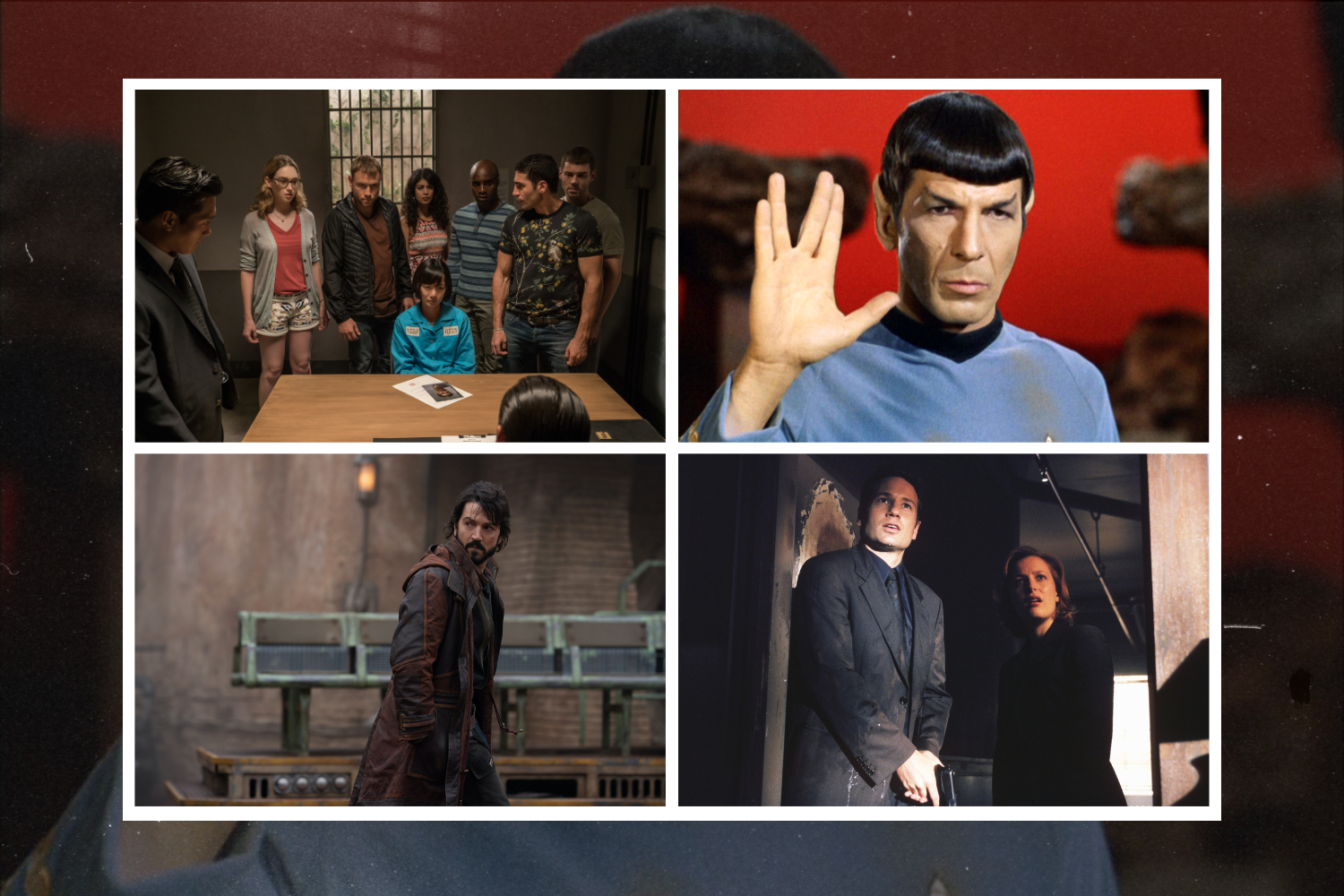
The science fiction genre is every bit as expansive as the worlds, galaxies, alternate realities, timelines, pasts, and futures that it explores on screen. TV shows in the genre have been made on almost every budget tier, often appeal to everyone from mainstream viewers to the most niche subcultures, and evoke tones from playful to thoughtful to downright disturbing.
Selecting a definitive best from such a wide range of worthy contenders is an almost impossible mission. But if there’s one thing we’ve learned from watching copious amounts of sci-fi TV, it’s that the journey is at least as important as the destination—and there’s always value in trying.
So with a method that admittedly leans more toward artistic subjectivity than scientific objectivity, we sought out the most qualified candidates by posing a number of qualifying questions: Does it say something interesting about the world in which it was created? Does it say something interesting about humanity in general? Has it added something unique to the genre? Has it changed the way people make TV? Has it changed the way people watch TV? Does it make us laugh, cry, think, have nightmares, or otherwise engage our minds and emotions? Could we reliably use it to convince alien invaders that there’s something about humanity worth saving?
In honor of a strong potential contender for future lists, 3 Body Problem, premiering on Netflix, here are the results of that effort to name the best sci-fi TV shows.
Read more: The 100 Best Fantasy Books of All Time
Lexx (1997-2002)
If science fiction truly is about all that humanity is and and all that we are capable of becoming, then you have to leave a little room for perverts and trash connoisseurs. At a time when Canadian TV was ripe with competent and tasteful co-productions like Earth: Final Conflict and Highlander: The Raven, this Canadian and German collaboration, in which a motley crew of underlings, an undead assassin and a lovesick robot set out to combat an evil religious cult, injected some much needed unapologetic shlock with a clever edge into the proceedings.
Stream it on Prime Video.
Æon Flux (1991-1995)
This Liquid Television animated staple about a sexy secret agent with nebulous motives and morals was so stylish, strange, and entrancing that it managed to convince a pre-X Files-pilled MTV generation that sci-fi could be cool. That cache was strong enough to inspire a video game, comics, and a big-budget live action movie adaptation starring Charlize Theron. And also strong enough to survive the more polarizing reception those spinoffs received.
Stream it on Paramount+.
Severance (2022-present)
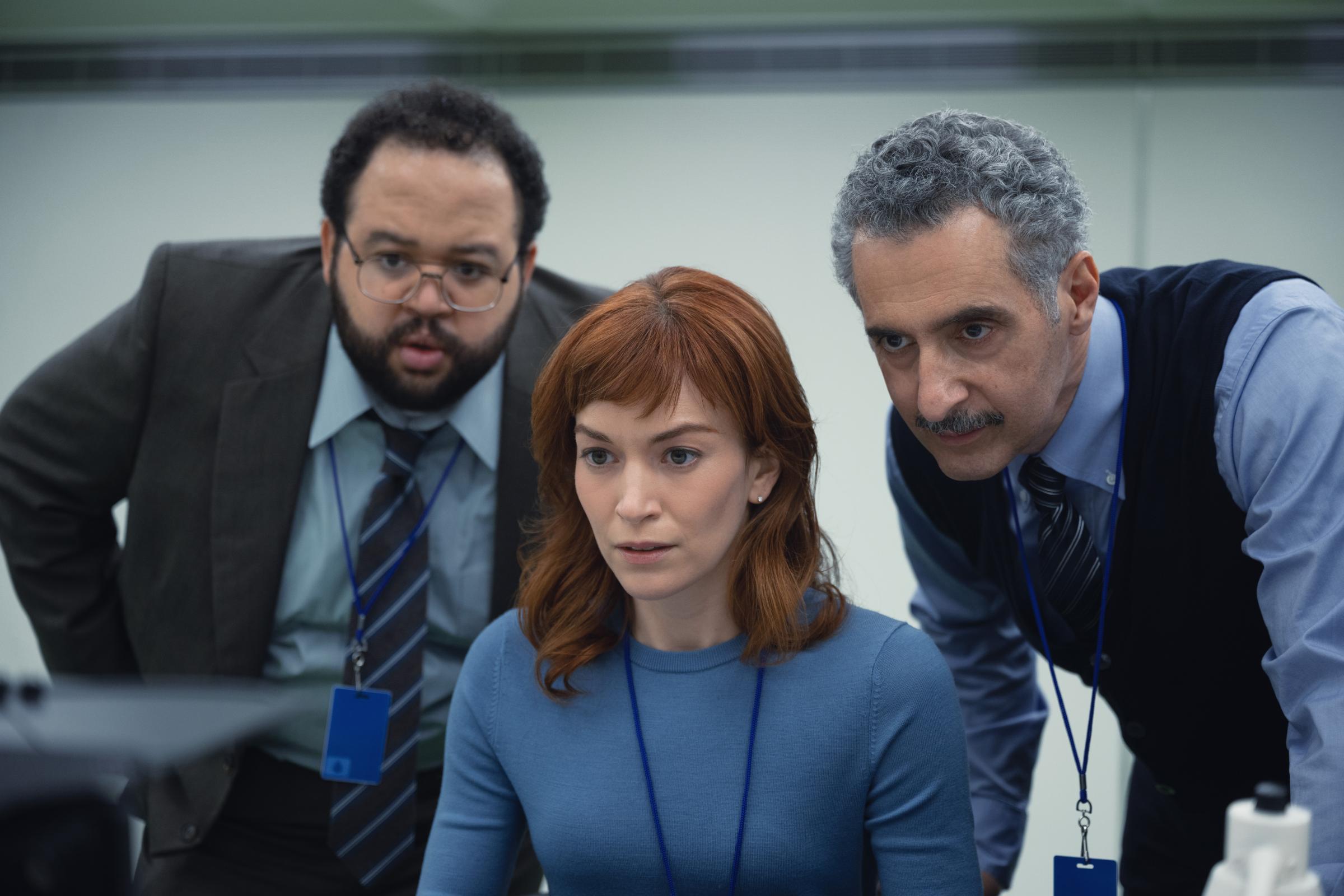
Building on the uncanny nature of real-life office spaces and adding a lightly speculative spin on work/life balance, Dan Erickson’s Apple TV+ series, which counts Ben Stiller as a director and Adam Scott as a lead, paints a deliciously nightmarish portrait of corporate culture. While it’s still too early to tell where this show is going to take us—we’re still waiting for a release date for the second season—it has the potential to be an all-time mundane dystopian classic.
Stream it on Apple TV+.
Star Trek: The Original Series (1966-1969)
A TV show so groundbreaking that it managed to change both what we watch and how we watch it. At the height of the Cold War, Gene Roddenberry and crew gave viewers an optimistic glimpse into a future that included equality, adventure, compassionate and thoughtful conflict resolution, and a dash of sexiness. They also took the occasional concrete step toward making such a future possible, like producing one of the first interracial kisses broadcast on television. The show’s viewers responded by helping to establish some of the more wholesome hallmarks of current fandom culture, including write-in campaigns, conventions, fanfiction in general and slash in particular.
Stream it on Paramount+.
Farscape (1999-2003)
The foundational show from SyFy (f.k.a. Sci-Fi Channel), courtesy of The Jim Henson Company, mixed snappy dialogue and dark themes as seamlessly as it blended its human and puppet cast. In true cult classic fashion, it went on to leave its undeniable mark on a number of more widely known successors, most notably James Gunn’s Guardians of the Galaxy films. It also transformed how certain pockets of the internet swore for a good decade or so.
Stream it on Peacock.
Firefly (2002-2003)
Given what we know now (the massive abuse allegations against creator Joss Whedon, some of which he has denied and some of which he has said he should have handled differently) and what more fans really should have recognized at the time (that worldbuilding a future in which Chinese language and culture are pervasive but very few Chinese people appear to exist is a failure of both representation and imagination), it’s probably more accurate to classify this one-season wonder from Fox as more of a (truly) guilty pleasure than the widely beloved cult classic it once was. But it didn’t seem accurate to completely ignore the impact that the space Western had on its passionate fanbase and the next generation of sci-fi writers. And that is to say nothing of the greatness of Gina Torres as Zoe Washburne.
Stream it on Hulu.
Andor (2022-present)
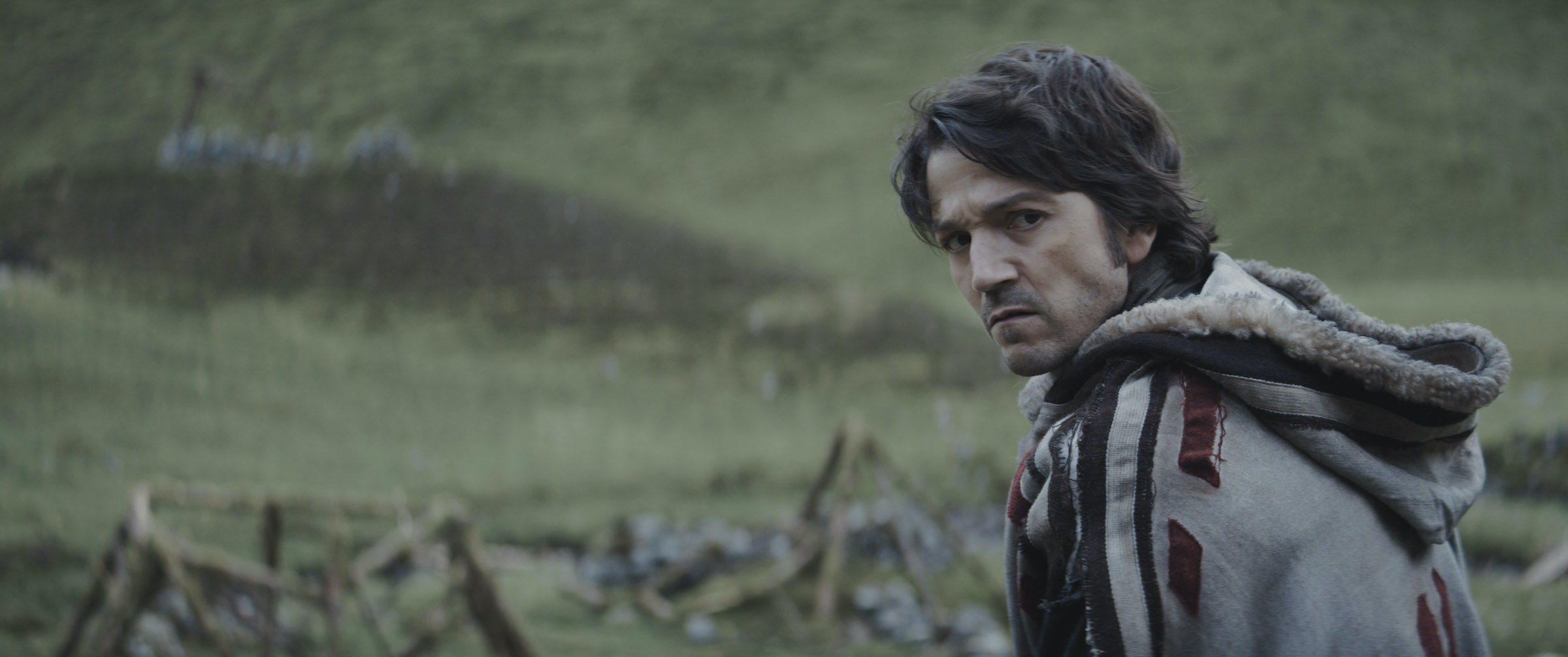
The Disney+ prequel to Rogue One: A Star Wars Story, led by Diego Luna, is proving to be a welcome expansion to the greater Star Wars universe, both in terms of characters outside the usual suspects and darker, meatier thematic territory.
Stream it on Disney+.
V: The Original Miniseries (1983)
Kenneth Johnson’s sobering parable about encroaching fascism, featuring not so subtly Nazi-coded lizard aliens, is unfortunately even more relevant today than it was when it first aired on NBC in 1983.
The Expanse (2015-2022)
There’s a lot that you can learn about people through their hopes and fears for the future, and the best sci-fi shows give us valuable insights into the eras in which they were made. In that sense, this complex Syfy turned Amazon Prime Video space opera about humanity trying to navigate the politics of a colonized solar system hundreds of years from now has established itself as the defining sci-fi series of the millennium so far. Half a century removed from space-race optimism and Cold-War paranoia, it offers a more realistic—and chilling—exploration of what could come next: What if humanity continues almost exactly as we are now, having learned nothing but the ability to take our problems further into the universe?
Stream it on Prime Video.
Sense8 (2015-2018)
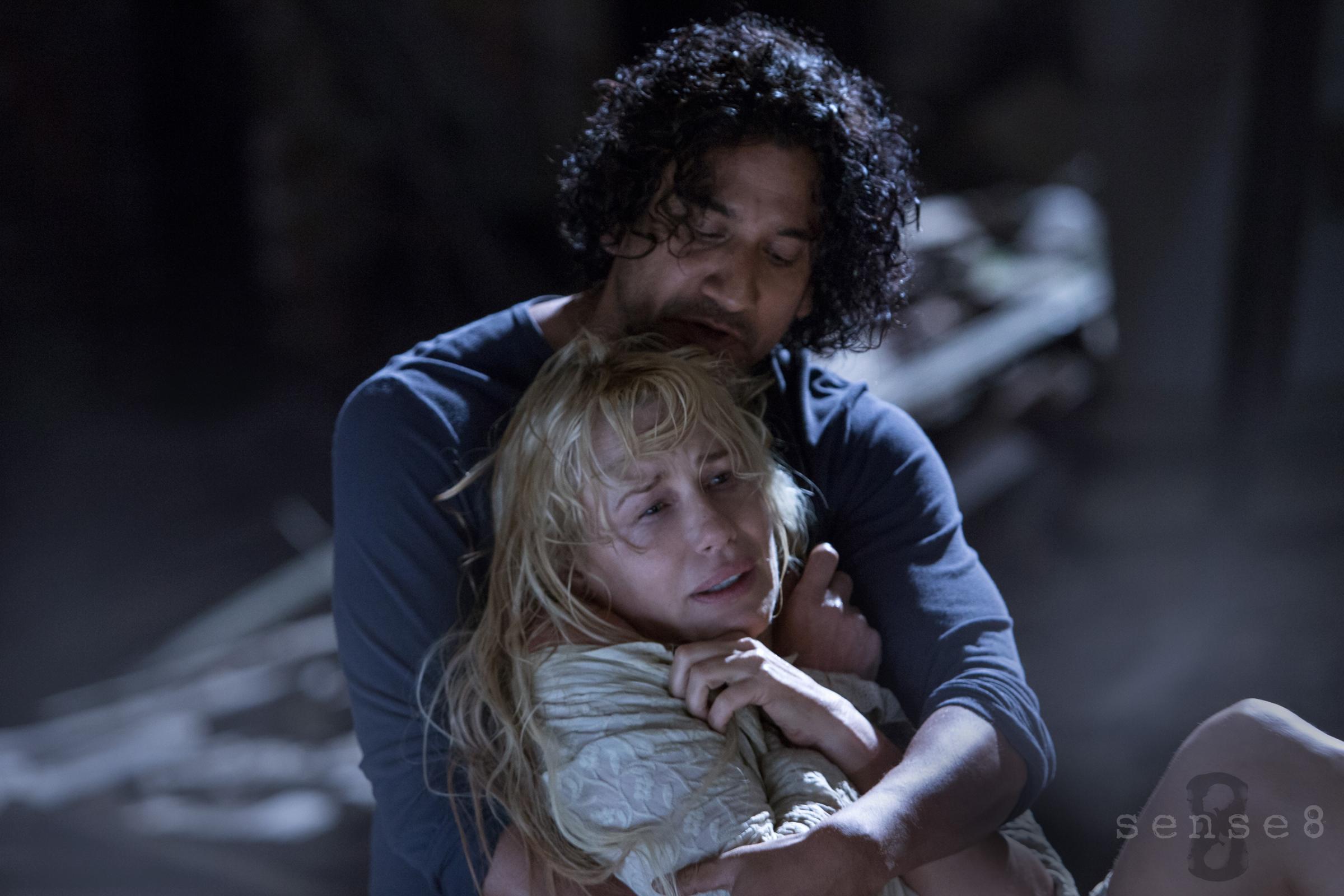
An early high mark in Netflix’s original programming (and one of the earliest and most heartbreaking victims of Netflix’s capricious cancellations), The Wachowski sisters’ supernatural spin on interconnectedness and empathy was bold and creative enough to envision a fictional universe that was at least as diverse as ours.
Stream it on Netflix.
Lost (2004-2010)
In light of Maureen Ryan’s meticulous and sobering reporting on the set’s toxic culture, this one has become another problematic fave. But the flagship series of J.J. Abrams and Damon Lindelof’s collective mystery box show oeuvre, Lost combined deeply human interpersonal drama, non-linear narrative flourishes, slowly but meticulously assembling puzzle pieces, and a touch of the unknown to make one of the most compulsively watchable series of the 2000s. It also made stars—or even bigger stars—out of the likes of Naveen Andrews, Evangeline Lilly, Daniel Dae Kim, Harold Perrineau, Lance Reddick, and many, many more.
Stream it on Hulu.
The X-Files (1993-2002)
The sheer breadth of what this seminal Fox series accomplished both within the show and in the greater pop-culture universe is almost an otherworldly phenomenon itself. Led by indelible performances from Gillian Anderson and David Duchovy as agents Scully and Mulder, it smoothly blended episodic and serialized storytelling, juggled ever deepening (and occasionally well-crafted) conspiracy plots with slow burning romance, and had the ability to effortlessly shift from broad comedy to existential terror to skin-crawling horror. It left its mark on everything from the shifting demographics of sci-fi fandom, to primetime serialized TV narratives, to dorm room decorations, and catchy alt rock songs from underrated Welsh bands.
Stream it on Hulu.
Neon Genesis Evangelion (1995-1996)
It’s almost impossible to explain the unsettling genius of this classic anime series about giant robots combatting giant bug-like aliens in a disaster-ravaged Tokyo, or the power of its impact, without sounding hyperbolic to the uninitiated. Yes, it really did play a major role in the revitalization of the anime industry and evolution of the mecha genre. The range of religious, psychological, philosophical and pop-culture influences that informed its exploration of the individual vs. collective consciousness really was that incredibly wide and multifaceted. And yes, the ending is probably going to mess with your head for a while.
Stream it on Netflix.
Battlestar Galactica (2004-2009)
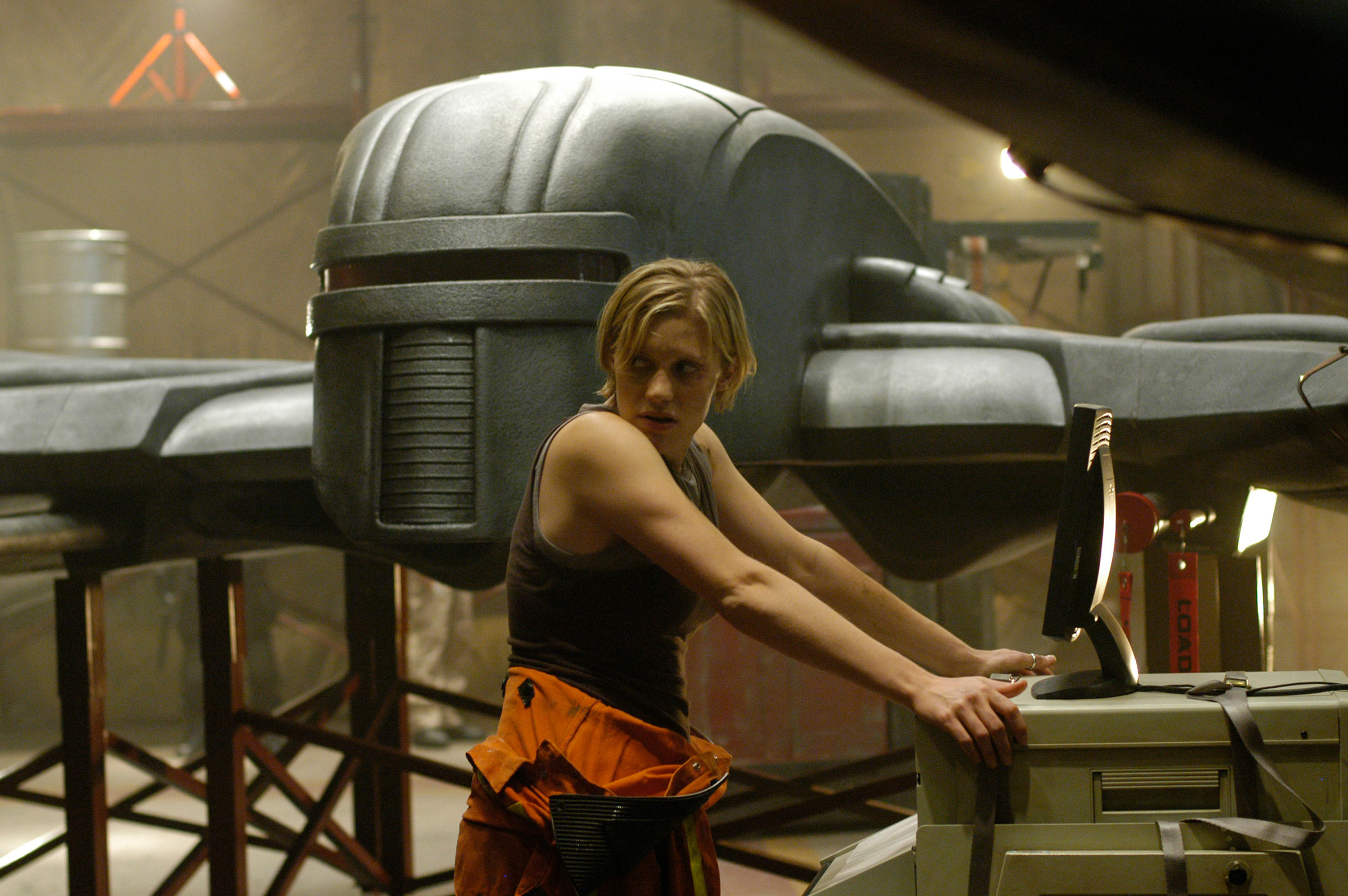
With a mix of respect for the 1978 original series, and a willingness to take those characters and concepts in bold new directions, Battlestar Galactica launched its series proper with one of the most breathless and anxiety-inducing (in a fun way) 45 minutes of TV ever broadcast. The show spent the next 4.5 seasons unraveling intrigue after intrigue, sinking its teeth into the nature vs. nurture debate, and giving Edward James “Martin Castillo” Almos a well-taken opportunity to add another iconic TV role to his legendary arsenal while the rest of the talented cast kept up with him as well as anyone could. Sure, people will be debating the ending for as long as people are talking about science fiction at all, but what great sci-fi show finale didn’t polarize and confound its audience at least a little?
Doctor Who (1963-present)
Sixty years in—minus a six-year hiatus and another nine-year hiatus briefly broken up by a canonical if not universally beloved run by Paul McGann as the 8th Doctor—the BBC stalwart is starting to resemble its titular character: a significantly longer lifespan than most of the similar-looking creatures that surround it, an endless fascination with human beings and how they work, and an impressive albeit imperfect ability to adapt to the times. And if you’re willing to tag along, it will take you on one hell of a journey. This May will see the 15th Doctor, Sex Education’s Ncuti Gatwa, continue his brilliant turn in the franchise, which kicked off at the end of last year.
Stream it on Britbox or buy it on Amazon or Apple.
The Twilight Zone (1959–1964)
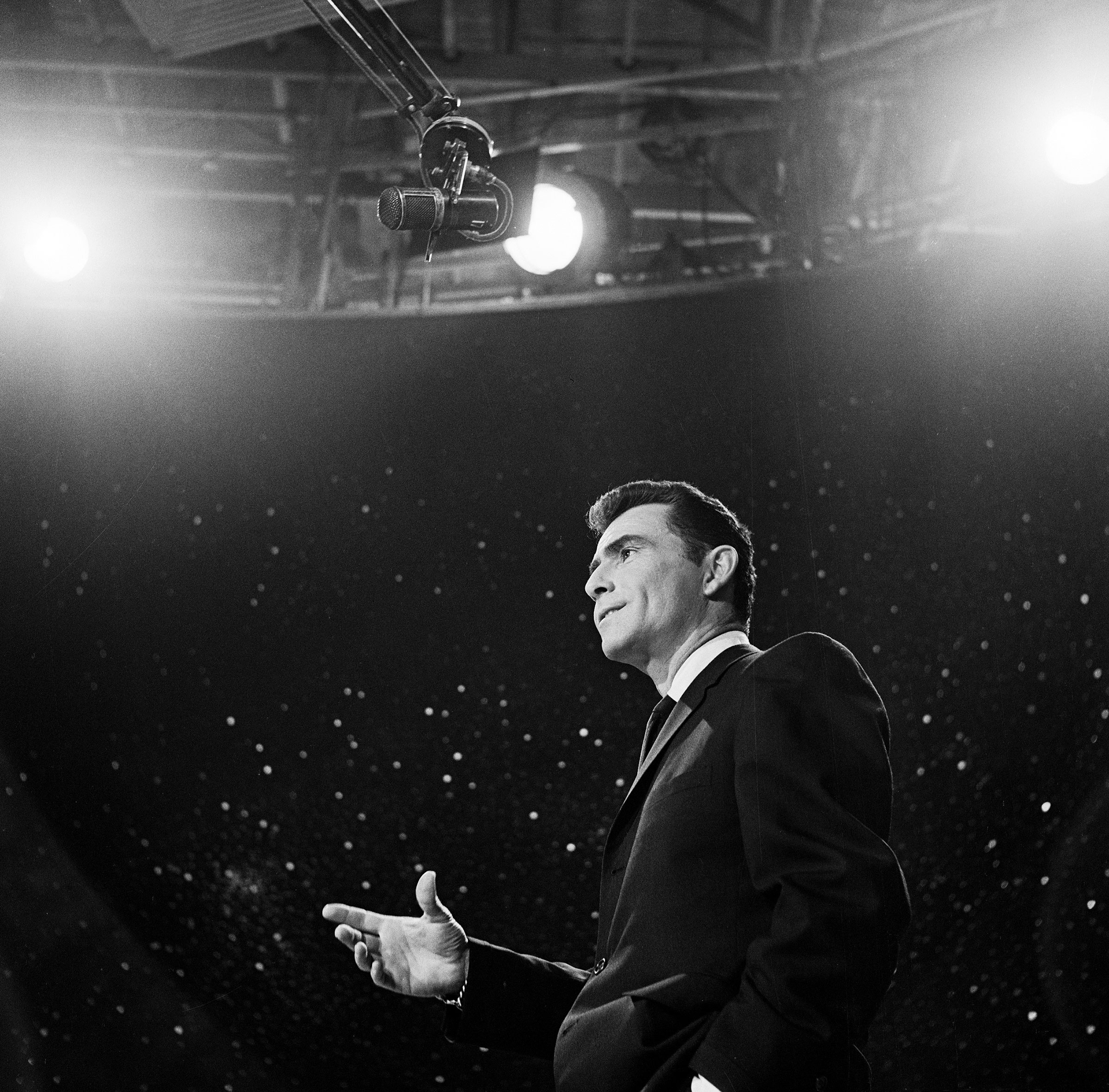
Six decades ago, the first big—and still the best—sci-fi and fantasy-tinged anthology series gave the world 156 episodes’ worth of expertly crafted stories, clever twists, morality plays, ironic repercussions, and nightmare fodder. Neither television nor viewers’ psyches have been the same since.
Stream it on Paramount+.
Star Trek: Deep Space Nine (1993-1999)
Every addition to the Star Trek franchise has contributed something new and valuable to that universe, and you could make a solid case for almost any of the series appearing on this list. What gives DS9 the edge here is just how much it expanded the themes and concepts that Trek could tackle. It was fascinating to watch the optimism and relatively straightforward moralism of the original series and The Next Generation forced to grapple with fundamentally more complex intergalactic conflicts and moral gray areas that couldn’t be solved over the course of an episode, or even a multi-series arc. Plus this show gave us whatever was going on with Garak and Bashir.
Stream it on Paramount+.
Fringe (2008-2013)
A mystery box show co-created by J. J. Abrams in the 2000s, Fringe was like Lost’s nerdier, weirder kid sister (meant in a completely complimentary sense). Over the course of five seasons, it blossomed from an intriguing mystery-of-the-week production into a timeline- and alternate universe-spanning story that grappled with questions of family, identity, and ethics augmented by career-defining performances by Anna Torv, John Noble, Joshua Jackson, and Jasika Nicole. It also pulled off one of the most satisfying conclusions in sci-fi television history by weaving all of its wide-ranging threads together in a way that remained true to its characters, themes, and overarching narrative.
Stream it on Max.
Red Dwarf (1988-1999)
This beloved British comedy doesn’t dig too deeply into the science part of the sci-fi equation. All of the space stuff is mostly an excuse to develop the characters, give the performers amusing things to do, and occasionally explore the human condition. But when the show dabbles in the futuristic and intergalactic, it does so to great effect. For example, it takes a genuinely terrifying classic sci-fi premise—what if you woke up alone on a spaceship three million years removed from everything you’ve ever known?—and makes it hilarious.
Stream it on Britbox or Britbox via Amazon or buy it on Apple.
Black Mirror (2011-present)
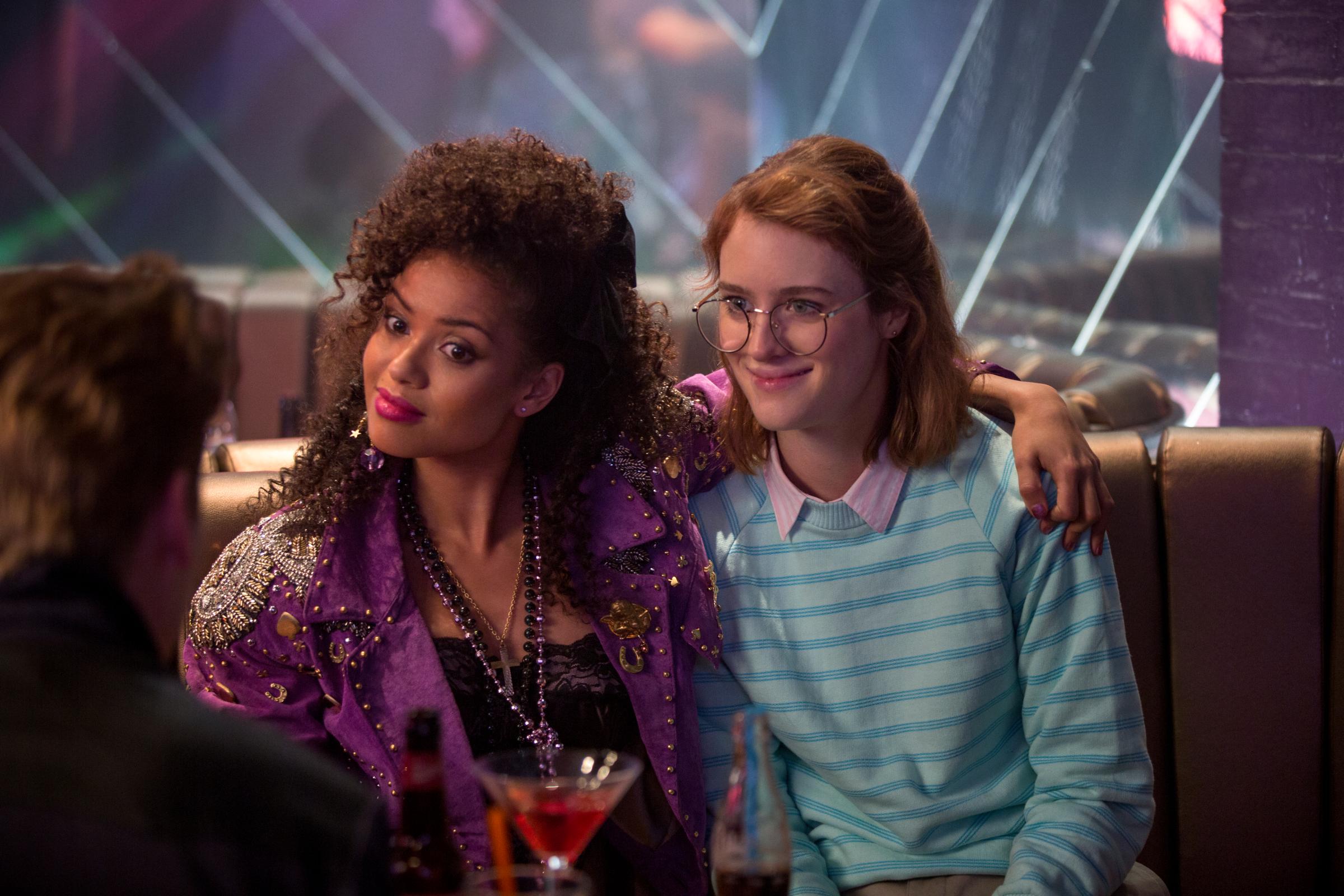
Present-day Netflix Black Mirror isn’t quite the unfailing juggernaut that it was in its early seasons on Channel 4. When it comes to anthology shows with British comedy pedigrees that are known for their twist endings, Inside No. 9 has the better batting average these days. But when this show is good, it is wickedly good, and its hits more than justify sitting through the occasional misfire. At its best, Black Mirror has given us brilliantly incisive reflections on the murky relationship between humanity and technology, some of the best TV to tackle the struggle between surveillance and autonomy since The Prisoner, and a thoroughly refreshing spin on the bury your gays trope. It’s not creator Charlie Brooker’s most prescient show—that honor now goes to 2005’s influencer-predicting and skewering Nathan Barley—but that’s an indictment of all of us, not Black Mirror.
Stream it on Netflix.
Lost In Space (1965-1968)
Sure, the perfectly competent 2018 Netflix remake has things like comprehensive storylines, a special effects budget, and the inspired choice to place the inimitable Parker Posey in the Dr. Smith role. But the original brainchild of disaster movie and adventure TV king Irwin Allen, who took the basic concept of The Swiss Family Robinson and flung it into the stars, has a sassy robot, space-age mod-influenced costumes, delightfully scenery-chewing villainy from the OG Dr. Smith Jonathan Harris, and a campy charm as limitless as the universe that the Robinsons are doing their best to navigate. So it gets to represent the franchise on this list.
Stream it on Hulu or buy it on Amazon or Apple.
Garth Marenghi’s Darkplace (2004)
The best parodies reflect a deep knowledge and at least a touch of affection for the object of their mockery. This 2004 comedy about a pompous shlock writer’s long lost vanity project about a supernaturally plagued hospital is a perfect example. The precision and attention to detail of every aspect from author Marenghi’s pompous declarations to the obvious strings on the no-budget effects makes it obvious that creators Matthew Holness and Richard Ayoade have watched at least as many horror and sci-fi shows as they’ve written.
Stream it on Prime Video or Peacock.
Life On Mars (2006-2007)
The BBC’s time-traveling procedural drama about a cop who gets hit by a car in 2006 and wakes up in 1973 combines sophisticated writing, 1970s fashions, classic rock, John Simm (best known to sci-fi fans as one of the Masters from Doctor Who) at the height of his dramatic and charismatic powers, and a gleeful exploitation of the British public’s collective fear of the test pattern girl and her creepy clown to make a solid case for the idea that one’s own past and/or mind are the biggest uncharted territory of all.
Stream it on Britbox or Britbox via Amazon.
Captain Scarlet and the Mysterons (1967-1968)
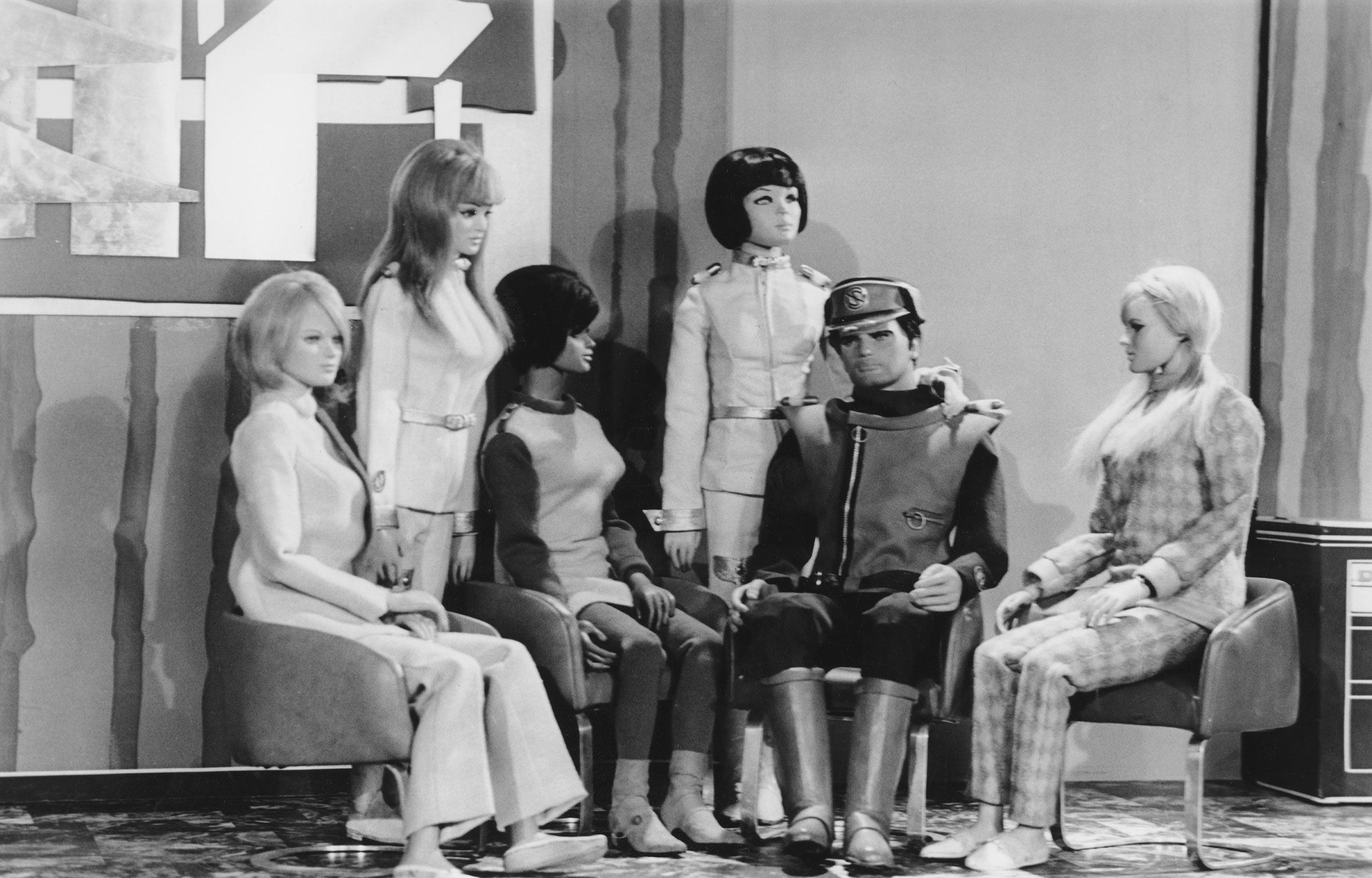
Supermarionation masterminds Sylvia and Gerry Anderson’s follow-up to their breakthrough hit, Thunderbirds, about an elite security unit who must defend Earth from a series of alien terrorist attacks that they unwittingly triggered on a previous mission, tackles issues like culpability and mortality more thoughtfully and more creepily than many live-action shows could manage at the time. It also gave the world a puppet that was more handsome than most human men.
Stream it on Fubo or buy it on Amazon.
The Prisoner (1967-1968)
Brilliant, twisted, and slightly adversarial creator and star Patrick McGoohan’s sui generis series plunked a freshly resigned unnamed spy in the middle of an eerily plucky and scenic penal colony and forever changed the way that viewers thought about individualism vs. collectivism. And privacy vs. surveillance. And individualism and autonomy. And charming Welsh tourist destinations. And weather balloons.
Stream it on Fubo or buy it on Amazon.
Sapphire & Steel (1979-1982)
Armed with little more than a budget that would make early Doctor Who seem like a Marvel movie by comparison, a moderate grasp of some of the trickier science that fuelled its plots, and dynamite performances by stars David McCallum and Joanna Lumley, Sapphire & Steel managed to pull of some of the most quietly unsettling television of all time. This supernatural thriller about a pair of anthropomorphized elements who have been sent to Earth to address anomalies in the fabric of time can be a hard sell thanks to its concept and extremely slow-burning storytelling. But those who are willing to be open-minded and patient will be rewarded with some of the purest, most haunting existential dread that TV can provide—and the inability to ever look at a gas station the same way again.
Stream it on Fubo or buy it on Amazon.
Futurama (1999-2003, 2008-2013, 2023-present)
Matt Groening’s fish-out-of-water comedy about an accidentally cryogenically frozen present-day pizza guy who wakes up in the 31st century, featuring the vocal talents of Billy West, Katey Sagal, John DiMaggio, and Lauren Tom, might be one of the most versatile shows ever made in any genre. The futuristic workplace comedy about a group of misfit humans, a crustacean-like alien, and mouthy robot is equally capable of making you cry with laughter or heart-ripping, gut-wrenching grief (looking at you, “Jurassic Bark”).
Stream it on Hulu.
Orphan Black (2013-2017)
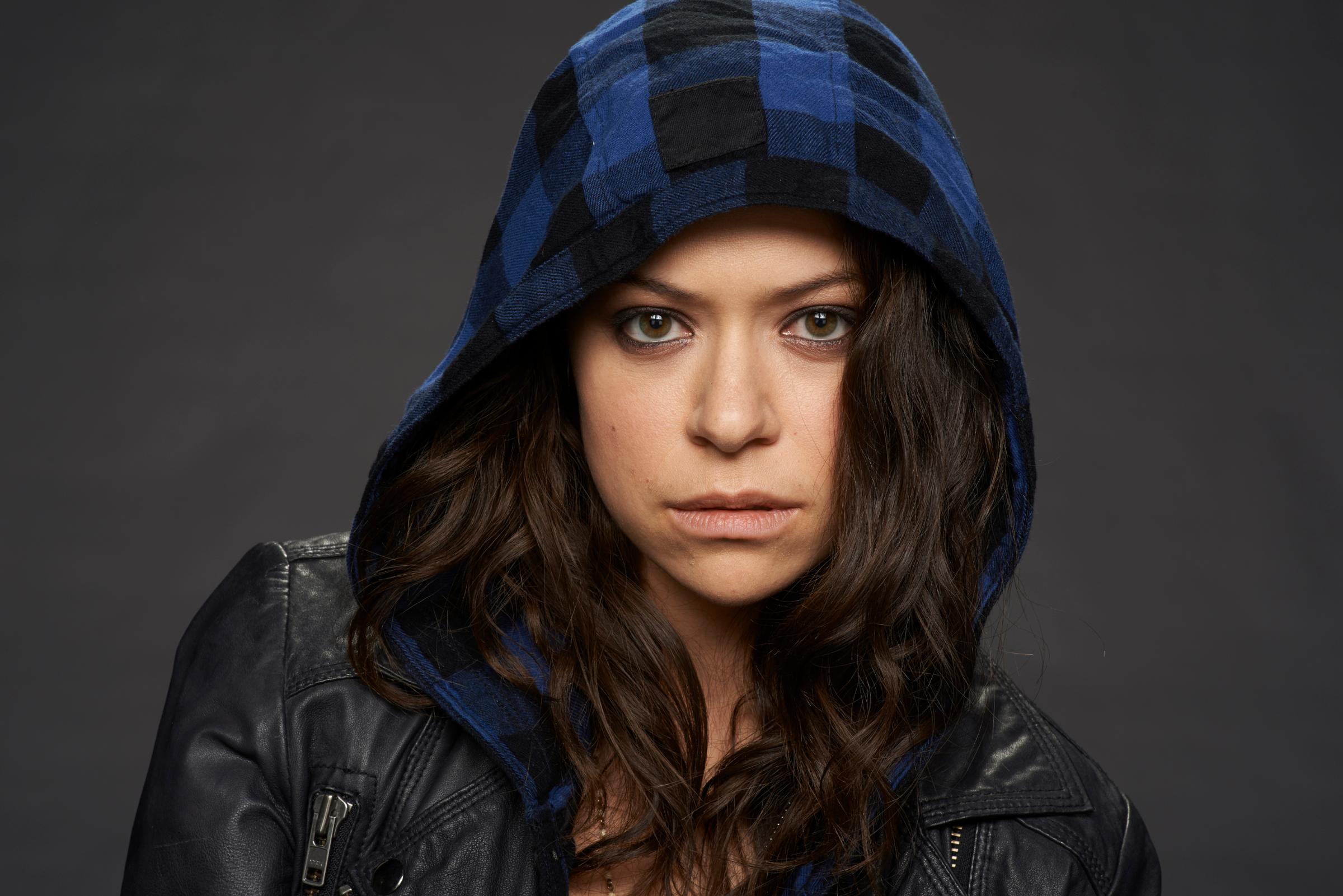
This Canadian drama starring Tatiana Maslany, Tatiana Maslany, Tatiana Maslany, and more of the brilliant Tatiana Maslany as a con artist who discovers that she’s one of a series of clones, delivered both thrills and thoughtful explorations of the ethics of cloning and the concept of identity. Maslany was nothing short of a revelation in all of her roles.
Stream it on Amazon.
More Must-Reads from TIME
- Breaking Down the 2024 Election Calendar
- How Nayib Bukele’s ‘Iron Fist’ Has Transformed El Salvador
- What if Ultra-Processed Foods Aren’t as Bad as You Think?
- How Ukraine Beat Russia in the Battle of the Black Sea
- Long COVID Looks Different in Kids
- How Project 2025 Would Jeopardize Americans’ Health
- What a $129 Frying Pan Says About America’s Eating Habits
- The 32 Most Anticipated Books of Fall 2024
Contact us at letters@time.com